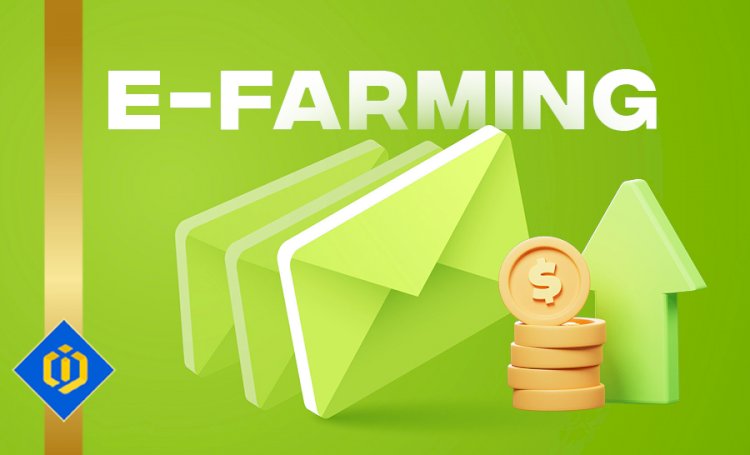Embracing the Digital Shift: Exploring Income Opportunities in E-Farming

The agricultural landscape is undergoing a remarkable transformation in the digital age, with e-farming revolutionizing traditional practices. This modern form of farming, also known as digital or precision farming, blends technology and tradition to create new and sustainable income opportunities. Let's delve into the various ways e-farming offers novel sources of revenue.
In our increasingly connected world, digital platforms are replacing traditional marketplaces. E-farmers can leverage this shift by directly selling their produce to consumers. Cutting out intermediaries allows farmers to increase profit margins, exercise greater control over pricing, and foster a direct relationship with consumers, building a sense of community and trust.
Beyond produce sales, e-farming opens doors for equipment owners. The high-tech machinery required for precision farming is often expensive, but farmers who possess such equipment can offer it for rent on peer-to-peer platforms. This not only assists other farmers who may find purchasing cost-prohibitive but also creates an additional income stream for equipment owners.
As technology integrates into farming practices, there is a growing demand for consultancy services in agriculture. E-farming experts can share their knowledge with farmers seeking to digitize their operations. This guidance enhances productivity, reduces costs, and facilitates a smoother transition to e-farming.
Data plays a vital role in e-farming, providing an avenue for lucrative opportunities. Data analysts can offer farmers actionable insights derived from their farming data, empowering them to make informed decisions that optimize resource utilization, improve yield quality and quantity.
Agritech, the intersection of agriculture and technology, presents another potential field of opportunity. Tech-savvy individuals can develop software and hardware solutions that address agricultural challenges, providing innovative tools to farmers and agribusinesses. These problem-solving innovations have the potential to generate substantial income and contribute to the growth of the agritech sector.
Moreover, e-farming has breathed new life into urban spaces through urban farming techniques like hydroponics and vertical farming. Facilitated by digital technology, these methods allow crop cultivation in space-limited urban settings. Urban farmers can sell locally grown, fresh produce to nearby residents and restaurants, contributing to sustainable food sources while generating profits.
In conclusion, e-farming is more than just a technological upgrade of traditional farming. It represents a revolution in agricultural practices, unveiling a multitude of income-generating opportunities. By embracing these possibilities, individuals can not only make significant contributions to this exciting field but also enjoy substantial financial rewards.
Author: Pooyan Ghamari, Swiss Economist & Visionary

 content-team
content-team 






















